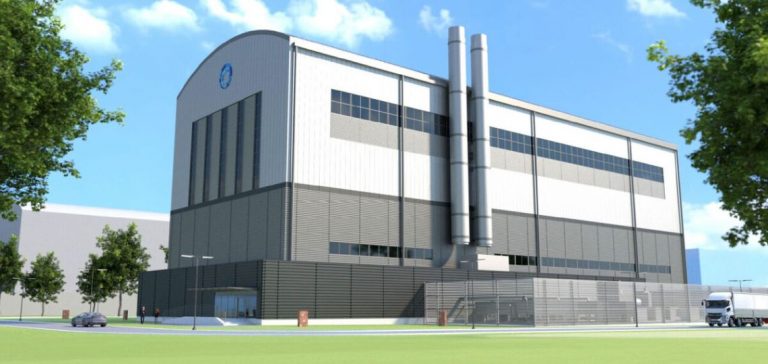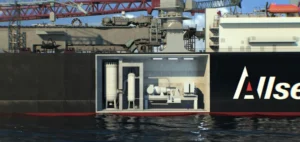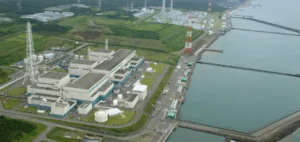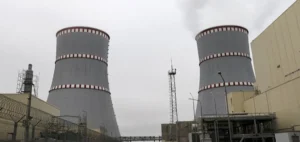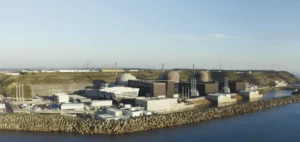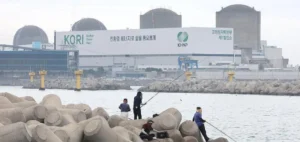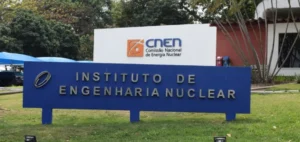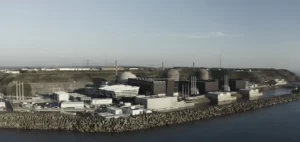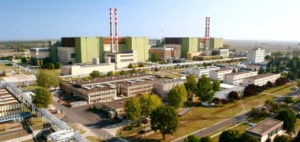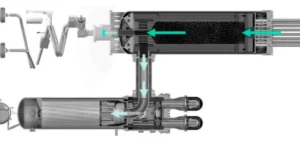Kairos Power, a company specializing in advanced nuclear technologies, has officially launched the construction of its new salt production facility at Mesa del Sol, near Albuquerque, New Mexico. This facility will play a crucial role in the production of high-purity molten salt, used as a coolant in the company’s advanced reactors.
The new facility, located within Kairos’s Manufacturing Development Campus, will be capable of producing large quantities of Flibe, a chemically stable mixture of lithium fluoride and beryllium fluoride. This molten salt enriched in Lithium-7 will meet the stringent specifications required for efficient and safe use in reactors.
Technology and Production Process
Kairos Power’s fluoride salt-cooled high-temperature reactor technology (KP-FHR) relies on the use of Flibe as a cooling agent. The facility’s proprietary production process will optimize the quality and purity of Flibe, thereby ensuring optimal reactor performance. This technological advancement is essential for the future development and optimization of commercial reactors.
The facility will benefit from lessons learned during the construction of the Molten Salt Purification Plant (MSPP) in partnership with Materion Corporation in Elmore, Ohio. The MSPP produced 14 tons of unenriched Flibe for Kairos’s Engineering Testing Unit-1 (ETU-1), demonstrating the company’s ability to produce molten salt at an industrial scale. ETU-1 completed more than 2000 hours of operations before being decommissioned earlier this year.
Support and Investments
The salt production project in Albuquerque is supported by the City of Albuquerque and the State of New Mexico through economic incentives approved in September. Additionally, it utilizes funds from the US Department of Energy’s Advanced Reactor Demonstration Program, along with substantial private investments. The construction and operation of the facility are expected to create between 20 and 30 full-time jobs, thereby strengthening the local economy.
TIC-The Industrial Company, a subsidiary of Kiewit Corporation, has been designated as the general contractor for the project. This collaboration ensures that the facility’s construction will be carried out in accordance with the highest industry standards.
Development of the Production Campus
Alongside the groundbreaking ceremony for the salt production facility, Kairos Power also dedicated its Manufacturing Development Campus. Part of the campus is being built on the site of a former solar panel factory, symbolizing the transition to advanced and sustainable energy technologies. The campus will house facilities for the manufacturing of advanced reactor components, U-stamped pressure vessel production, modular reactor construction, fuel fabrication process development, and large-scale non-nuclear testing.
According to Ed Blandford, Chief Technology Officer and co-founder of Kairos Power, “The facilities we are building in Albuquerque will play a central role in deploying Kairos Power’s clean energy technology with robust safety at an affordable cost.” He added that the addition of molten salt production will allow the campus to have all the necessary capabilities to deliver the Hermes demonstration reactor and establish a credible path to scale up production for the commercial fleet.
Future Prospects
Kairos Power has already begun site preparation work for Hermes, a demonstration version of the KP-FHR, in Oak Ridge, Tennessee, in July. The unit is scheduled to be operational in 2026, followed by a two-unit electricity-producing plant. This development marks an important milestone in Kairos Power’s vision for cleaner and more efficient nuclear energy.
Kairos Power’s iterative approach, based on continuous learning and process optimization, positions the company as a key player in the advanced nuclear energy sector. With this new facility, Kairos Power strengthens its ability to meet future energy needs while adhering to high standards of safety and sustainability.


